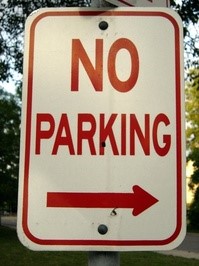 A member of the well-known Miami Mas Canosa family has filed a class action lawsuit against Tremont Towing because his car got towed from a private parking lot during non-business hours. He claims that the towing company violated Miami-Dade County and City of Miami Beach laws requiring private property owners to authorize every tow with a signature. The lawsuit alleges that Tremont Towing cannot operate under a blanket request to tow vehicles without specific individual approval. The class action lawsuit also alleges that the City of Miami Beach gets a percentage of the tow fees and, as a result, the City is also named as a defendant. While taking such a position is popular (everyone hates towing companies until you need one), it is wrong and the class action lawsuit should be dismissed.
A member of the well-known Miami Mas Canosa family has filed a class action lawsuit against Tremont Towing because his car got towed from a private parking lot during non-business hours. He claims that the towing company violated Miami-Dade County and City of Miami Beach laws requiring private property owners to authorize every tow with a signature. The lawsuit alleges that Tremont Towing cannot operate under a blanket request to tow vehicles without specific individual approval. The class action lawsuit also alleges that the City of Miami Beach gets a percentage of the tow fees and, as a result, the City is also named as a defendant. While taking such a position is popular (everyone hates towing companies until you need one), it is wrong and the class action lawsuit should be dismissed.
The County law clearly states that certain sections of the County’s towing laws do not apply in any municipality that has adopted and maintains in effect ordinances or regulations governing the same matters. Miami Beach has adopted its own local towing ordinance, including procedures for the removal of trespassing vehicles from private property. It specifically states that during non-business hours, a towing company does not need permission from the property owner to tow vehicles that are illegally parked. The lawsuit admits that the Plaintiff trespassed on the subject property for at least one hour and a half on an early Sunday morning. However, there appears to have been no business open during the hours that Mr. Mas illegally parked his vehicle and was towed. In other words, Mr. Mas’ vehicle was towed during non-business hours.
Tremont Towing attorney Ralph Andrade told the Miami Herald that he is confident that the class action lawsuit will be dismissed.
 Miami Personal Injury Attorney Blog
Miami Personal Injury Attorney Blog

